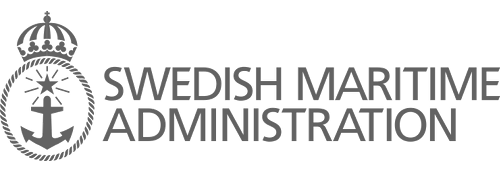| Marine Science and Technology Centre (MARSTEC) | |
Marine Science and Technology Centre (MARSTEC) is a research and study subdivision of Klaipėda University (KU), a higher academic institution largely oriented to marine science, education and industry. MARSTEC consolidates university’s scientific potential and provides infrastructure for marine research and technological development. The Centre is a knowledge core of the Marine Valley, the marine cluster aimed to bring together marine science, education and busyness in Lithuania. Main activities of MARSTEC are: to conduct fundamental and applied marine environmental and technological innovation research, to contribute to the economic development of the Lithuanian maritime sector by providing scientific knowledge and innovations to maritime busyness and promoting sustainable use of marine resources and environment; to prepare highly qualified specialists (doctorate level) in marine environmental and technological studies. | ||
| ||
| Danish Meteorological Institute (DMI) | |
The Danish Meteorological Institute (DMI) was established in 1872. DMI is an institution under the Danish Ministry of Climate, Energy and Building and has an annual turnover of approx. 285 million Danish Kroners. DMI provides meteorological, ocean and climate services in the Commonwealth of the Realm of Denmark, the Faroe Islands, Greenland, and surrounding waters and airspace. Purpose of all activities is to safeguard human life and property. DMI’s many activities also act as background knowledge in terms of planning and decision-making in economic and environment sectors - especially within transport and industry businesses. DMI collects and processes meteorological, climatological and oceanographic measurements/observations, and measures, collects and compiles related geophysical parameters throughout the Realm. Conducting research and development within its area of expertise, DMI ensures efficient operations and state-of-the-art quality in all productions. DMI coordinated EU/Baltic marine research projects PAPA, ODON, ECOOP, YEOS, BALTADAPT etc. DMI is the Baltic leader in GMES projects MERSEA, MyOcean 1,2 and FO. DMI also has leading expertise in quantitative assessments of European Sea physical and biogeochemical monitoring networks, who led the European Sea and/or Baltic Sea monitoring network assessment in ODON, ECOOP, OPEC and JERICO. | ||
| ||
| EuroGOOS | |
EuroGOOS is an International Non-Profit Organisation committed to European-scale operational oceanography within the context of the Global Ocean Observing System of the Intergovernmental Oceanographic Commission of UNESCO (IOC GOOS). It was founded in 1994 as an informal association. Since February 2013, it is established as an International Non-Profit Organisation in Belgium (EuroGOOS AISBL) increasing in this way its efficiency and improving the representation of its members towards the EC and other EU or international bodies. EuroGOOS has 40 members from 19 European countries providing operational oceanographic services and carrying out marine research. We work towards the collective interest of our members, to improve the quality and cost effectiveness in the production of operational oceanographic services at national, regional and global levels for a wide variety of users. | ||
| ||
The Finnish Meteorological Institute's mission is to produce high-quality services and scientific know-how on the atmosphere and seas. The Institute uses its expertise to provide services that promote public safety and enhance well-being among people and in the environment, taking into account the needs to maintain preparedness. Besides the weather and safety, FMI’s major challenges and areas of focus include the impact of the atmosphere on the environment and people, and climate change and adaptation to it. Marine research programme of FMI is based on international co-operation in research of ice, waves, sea level, hydrographic conditions and surface drift. The results are used in developing forecast models and services in the Baltic Sea. The FMI is a member of the “ Baltic Ocean Observing System” (BOOS) and delivers sea level and surface wave data and forecasts. FMI is also responsible for physical oceanography monitoring of the Baltic Sea in Finland and collects CTD-data from research ship and coastal stations. Most of the data is near real time. The Institute has approximately 720 employees. | ||
| ||
| Technical University of Denmark (DTU) | |
The Technical University of Denmark (DTU) is a leading technical university in northern Europe consisting of 20 institutes covering a wide variety of scientific fields. The National Institute of Aquatic Resources, DTU Aqua at DTU, covers a wide range of marine and freshwater disciplines and undertakes research and provides advice concerning sustainable exploitation of marine and fresh water living resources. | ||
| ||
| ETT | |
ETT is digital creative industry that designs and develops informative system for management and monitoring of big data and metadata. It is part of the SCAI group. ETT develops and manages ICT projects, web portals, mobile apps, databases, web GIS and forecast portals and applications for marine and ocean data information systems. ETT is coordinating EMODnet Physics lot, deeply involved in EMODnet Data Ingestion and participates to a series of national and EU projects in the field of oceanography and marine data management (SCHeMA project on FP7 Ocean of Tomorrow; JERICO-NEXT on H2020; AtlantOS on H2020 BG8, SeaDataCloud on H2020, EuroSEA in H2020, SOCHIC in H2020, JericoS3 in H2020). ETT was in charge for the EMODnet Baltic Sea Check Point portal and for the INCREASE CMEMS Service Evolution project data management infrastructure and interoperability. It was involved in the LAMBDA CMEMS Service Evolution for developing new tools and products on river data and land-sea interaction in support of CMEMS MFCs. Since December 2017, ETT is contributing to the development, operational maintenance and evolution of the CMEMS DU NRT and CMEMS DU MY (i.e. the CMEMS Dissemination Units). ETT is ISO9001:20015 certified for planning, development and maintenance activities of software services, software instruments, database and planning, development and maintenance activities of web-based systems. ETT is also ISO9001:20015 certified for formation activities management. | ||
| ||
| ||
The Swedish Maritime Administrations primary mission is to promote safe, environmentally sustainable and efficient shipping. Meeting the needs of the maritime sector for infrastructural services in the form of sea routes, pilotage, icebreaking, nautical information, communications and service. Managing maritime and aeronautical search and rescue operations. Safeguarding the competitiveness of the Swedish maritime sector According to the Government’s instructions, the main focus of the Swedish Maritime Administration’s operations should be on merchant shipping, but the Administration should also look after the interests of recreational craft traffic, fishing and the Swedish Navy. | ||
| ||
| Swedish Meteorological and Hydrological Institution (SMHI) | |
The Swedish Meteorological and Hydrological Institution is the national governmental agency responsible for operations in meteorology, hydrology, oceanography and climate at national level under the Ministry of Environment. SMHI's mission is to manage and develop information on weather, water and climate that provides knowledge and advanced decision-making data for public services, the private sector and the general public. SMHI aims to contribute to increased social benefit, safety and a sustainable society. | ||
| ||
| TALTECH | |
Tallinn University of Technology (TALTECH, previously TUT) is internationally recognized as a research university and promoter of economic development and innovation. In Earth sciences TalTech specifically promotes research into geology, physical and biological oceanography, meteorology and coastal science and engineering. TalTech has 8 faculties, 5 colleges and 4 research institutes. TalTech Marine Systems Institute (MSI) conducts open sea monitoring, in the frames of the national monitoring program and assists Ministry of Environment in implementation of Marine Strategy Framework Directive in Estonia, and research related to physical and biological oceanography, including processes that control the biogeochemical cycles of substances in the stratified Baltic Sea. TalTech Institute of Cybernetics (IoC) focuses on the coastal engineering related research and applications, with emphasize on applications to integrated coastal zone management. Rapidly emerging new foci are the use of Langrangian transport of different substances in marine and coastal environment for spatial planning exercises and in the design of preventive methods for mitigation of marine-induced hazards. | ||
Subcontractor
| Grontmij A/S | |
Grontmij A/S is part of the European consultancy group Grontmij, one of the largest players in the European consultancy and engineering market. Grontmij A/S has more than 20 years of consultancy experience in the onshore and offshore wind industry worldwide. Offshore we have provided expert inputs since we established the design basis for the first large off shore wind farm, Middelgrunden, Denmark. We provide expertise input within the entire design process for offshore wind farms, and have extensive experience in site assessment for offshore wind farms – with the objective of adapting the technology to the specific site. This includes everything from geotechnical recommendations to soil analysis, to the design and certification of the foundation design. Grontmij have previously been engaged in projects with shallow as well as deep water installations, including evaluation of the (often critical) effect of cyclic loads from wind in combination with current, tides, waves and ice. We use the latest computer technology within Finite Element Method modelling to include non-linear effects of cracked concrete, evaluate composite structures and carry out analysis of structural Eigen frequencies. | ||










